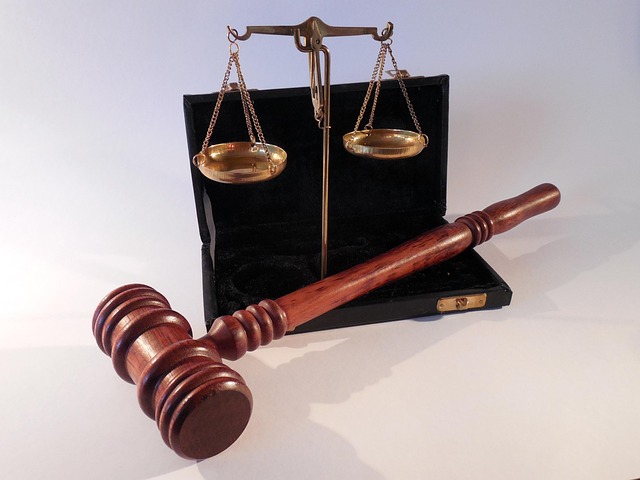Regulatory Fraud Laws protect consumers, investors and businesses from deceptive practices by defining key terms and covering activities like financial misrepresentations. Understanding these laws is crucial for resolving business partner disputes, preventing unfair advantages and fostering trust. Early dispute resolution strategies include clear contracts, open communication, mediation or Alternative Dispute Resolution (ADR). In case of partner fraud, civil lawsuits allow seeking damages while engaging experienced legal counsel specializing in corporate law and criminal defense offers guidance on negotiations, indictments, and liability mitigation for high-stakes situations.
Regulatory fraud laws are designed to protect businesses and consumers from deceptive practices, ensuring fair competition and market integrity. This article delves into the intricacies of these laws, focusing on key definitions and scopes. We explore effective strategies for early dispute resolution, aiming to prevent escalation. Additionally, we examine legal remedies and enforcement, guiding you through consequences and potential recovery options. Learn how to navigate these complex matters and resolve business partner disputes successfully.
- Understanding Regulatory Fraud Laws: Key Definitions and Scopes
- Strategies for Early Dispute Resolution: Preventing Escalation
- Legal Remedies and Enforcement: Navigating Consequences and Recovery
Understanding Regulatory Fraud Laws: Key Definitions and Scopes

Regulatory Fraud Laws are designed to protect consumers, investors, and businesses from deceptive practices within various industries. Understanding these laws begins with defining key terms like ‘fraud,’ ‘regulatory bodies,’ and ‘disputes’. Fraud refers to deliberate deception aimed at gaining an unfair advantage, often involving financial loss or harm to others. Regulatory bodies are government agencies tasked with overseeing specific sectors and enforcing compliance with established rules and guidelines. Disputes, in this context, arise from disagreements between business partners, which can lead to legal battles if not resolved amicably.
Knowing the scope of these laws is crucial when navigating How to Resolve Business Partner Disputes. Regulatory Fraud Laws cover a wide range of activities, including misrepresenting financial statements, manipulating market prices, and concealing material information. The process typically involves all stages of the investigative and enforcement process, from initial reports to jury trials if evidence warrants criminal charges. For his clients, understanding these laws can help prevent disputes and ensure compliance, thereby fostering trust and transparency in business relationships.
Strategies for Early Dispute Resolution: Preventing Escalation

Early dispute resolution is a key strategy to prevent escalating conflicts between business partners, which can often lead to costly legal battles. When disputes arise, taking proactive measures can be beneficial for all parties involved. One effective approach is to establish clear and comprehensive contracts that outline expected behaviors, roles, and consequences of breaching agreements. These contracts should be meticulously drafted, covering various scenarios, to serve as a robust foundation for any business partnership. By doing so, potential issues are identified and addressed before they escalate.
Additionally, implementing open communication channels is vital. Regular meetings, transparent discussions, and prompt addressing of concerns can help resolve issues at an early stage. Encouraging a culture of dialogue fosters understanding and strengthens the relationship between partners. In cases where misunderstandings or disagreements occur, seeking mediation or alternative dispute resolution (ADR) methods, such as arbitration, can be more cost-effective and less time-consuming than going to court, especially for white-collar and economic crimes. This allows for a collaborative problem-solving approach, tailored to the specific needs of the business partners, rather than relying solely on a general criminal defense strategy.
Legal Remedies and Enforcement: Navigating Consequences and Recovery

When it comes to regulatory fraud laws, understanding legal remedies and enforcement mechanisms is crucial for businesses looking to navigate potential disputes with partners. If a business partner is found guilty of fraudulent activities, several legal options are available to recover losses and mitigate future risks. These can include civil lawsuits, where affected parties can seek damages for financial losses, reputational harm, and other injuries caused by the fraud.
In high-stakes cases, where significant amounts are at stake, a robust strategy is essential. Engaging experienced legal counsel specializing in both corporate law and general criminal defense can be invaluable. Their expertise can help businesses formulate effective responses, including negotiating settlements, pursuing indictments, or mitigating potential liabilities. By carefully navigating these consequences, businesses can not only recover from fraudulent actions but also implement measures to avoid similar situations in the future.
Regulatory fraud laws play a pivotal role in maintaining integrity within business transactions. By understanding key definitions, recognizing early dispute signs, and employing effective resolution strategies—such as mediation or arbitration—companies can minimize escalations. Should disputes persist, knowledge of legal remedies ensures businesses are prepared for potential consequences while also fostering a culture of transparency and accountability among partners. Ultimately, proactive navigation of these laws is essential for resolving business partner disputes and ensuring long-term success in today’s regulatory landscape. For businesses seeking to avoid or mitigate fraud risks, “How to Resolve Business Partner Disputes” serves as a valuable guide, offering practical insights into navigating complex legal territories.






